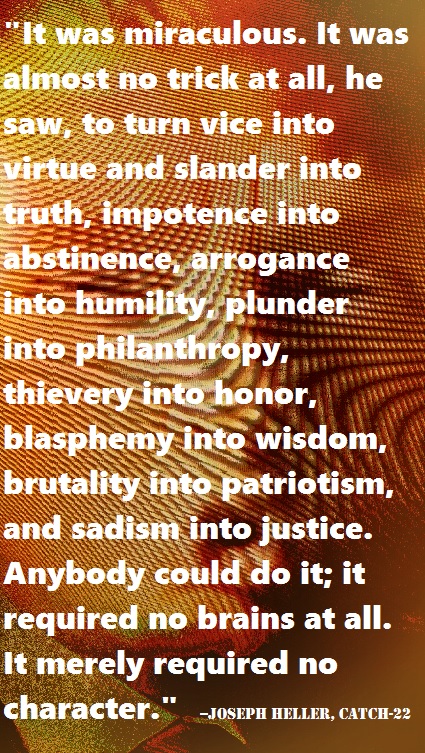“It’s high time folks started calling out the Democrats for their racial appeals.”
—Alabama Congressman Mo Brooks, of, uh, Alabama
For years now I have written about white angst, about how, especially in the age of Obama, white folks have gone politically berserk over the prospect of the tanning of American demographics. That angst, I have argued, helps explain the energy of the various Tea Party insurgencies, animated by, as I like to put it, fear of the Scary Negro in the White’s House.
Finally, some whiter-than-the-wind-driven-snow Tea Party Republican in Congress, Rep. Mo Brooks—who came to the House in that infamous and game-changing 2010 election—has just come right out and said it: Democrats are waging a “war on whites.” And, of course, this war is being led by un-snowy Barack Obama, winner of two national elections in which, the pale Alabama congressman claims, the winner engaged in a strategy of dividing the American electorate by “race” and “sex” and “greed” and “envy” and “class warfare” and “all those kinds of things.”
Republicans, obviously, have had nothing to do with dividing the country by race (ignore them claiming that the impeachable Barack Obama is an illegitimate president who may or may not have been born on the Dark—having nothing to do with his complexion—Continent, and ignore them legislating that pigmented kids from Central America need to exit this Jesus-blessed land pronto) or sex (ignore them demanding that the government probe vaginas before women earn their constitutionally-protected reproductive rights) or greed (ignore them running offense for Wall Street quintillionaires) or envy (ignore them arguing that Democratic voters covet the wealthy’s dough) or class warfare (ignore them insisting that if you’re not rich, you  didn’t work hard enough). Yep. If you look through your blind eye, you can see that Republicans had nothing to do with dividing Americans.
didn’t work hard enough). Yep. If you look through your blind eye, you can see that Republicans had nothing to do with dividing Americans.
Speaking of blind eyes, The Nation’s Mychal Denzel Smith points out a part of Mo Brooks’ commentary that many have overlooked. About the immigration issue, Brooks, who told Chris Hayes last Friday that he wants all of the millions of undocumented immigrants deported, said on Monday:
It doesn’t make any difference if you’re a white American, a black American, a Hispanic American, an Asian-American or if you’re a woman or a man. Every single demographic group is hurt by falling wages and lost jobs. Democrats, they have to demagogue on this and try and turn it into a racial issue, which is an emotional issue, rather than a thoughtful issue. If it becomes a thoughtful issue, then we win and we win big. And they lose and they lose big.
Smith writes:
It’s the type of language used to dismiss the real-world concerns of those of us who live on the oppressed side of racism in America. Our issues aren’t considered serious intellectual questions but emotional reactions that are to be dealt with personally. But any discussion of jobs and wages that doesn’t consider race (or gender) is intellectually dishonest. To pretend there are not groups of people who are disproportionately disadvantaged under our current economic model and that our ongoing legacy of racism and white supremacy are not contributing factors means you are not actually looking for solutions. You’re turning the same blind eye that has allowed the suffering in the first place.
Idiomatically, the phrase “turn a blind eye” means to deliberately ignore something or pretend not to see it. This is what Republicans are trying to ignore or pretend they don’t see:

And the blind eye doesn’t see the following numbers, including from Mo Brooks’ Alabama and my own state of Missouri:
Yes, as you can see with your good eye, Democrats are waging quite a war on whites.









Jim Wheeler
/ August 5, 2014Well said, Duane. One wonders why Mo Brooks hasn’t suggested “shipping them all back to Africa,” a phrase I heard once. Probably has. And speaking of Mo Brooks, when I read his name I thought of Mel Brooks, and that made me think of Blazing Saddles. Funny how the mind works, eh? Someone should send Mo a copy.
LikeLike
R. Duane Graham
/ August 6, 2014You won’t believe this, but I kept wanting to type “Mel” when I was typing Brooks’ name. Blazing Saddles was quite an entertaining flick, which shouldn’t surprise. Mel Brooks and Richard Pryor on the same writing team was bound to produce a movie in which, among other strange and funny things, Alex Karras coldcocks a horse.
LikeLike
Ben Field
/ August 5, 2014Abe Lincoln must be spinning in his grave at an EF-5 category based on his party’s evolution.
LikeLike
Ben Field
/ August 5, 2014My mistake, Republicans don’t believe in evolution.
LikeLike
R. Duane Graham
/ August 6, 2014I’ve been reading about Lincoln lately. His spinning is, undoubtedly, tornadic. And I think the term best used to describe what happened to Lincoln’s party is “devolution.”
LikeLike
Nagarjuna
/ August 5, 2014In my business (organizational and safety culture improvement) we use a term, probably from psychology, called “confirmation bias”. Confirmation bias is simply the act of noting or acknowledging data that confirms your world view (or desired outcome) and ignoring data that denies your world view (or demonstrates an undesired outcome).
Every human being that ever existed is subject to confirmation bias; indeed, to maintain that you are not subject to confirmation bias indicates that you most certainly are, right now.
Most people know that confirmation bias is a problem and try to compensate for it. They use phrases like “I could be wrong, but I think that….” or “I what I know now indicates that thus and so is true..” In other words, they leave the door open for being wrong, because their experience indicates that they are wrong from time to time.
Politicians and other liars fall into the category of “frequently wrong, but never in doubt” that I have mentioned in comments to this blog before.
Why do they do this? Because they do not want to debate or discuss their word view or opinions and subject them to the possibility of being demonstrated to be wrong.
It seems to me the whole of the repugnican platform is constructed from confirmation bias.
Totally, which is difficult to do.
LikeLike
R. Duane Graham
/ August 6, 2014You know, I worry a lot about confirmation bias regarding my own research and opinions. One has to be constantly on guard against succumbing to its charms, since it is much more comforting for one’s beliefs to be stroked rather than challenged. I appreciate you bringing it up, in this context especially. I might quibble with you, though, that “most people know that confirmation bias is a problem and try to compensate for it.” The insidiousness behind confirmation bias seems to lie in the fact that most people are unaware of it or don’t understand the scope of its power. I wish people were more conscious of how they tend to evaluate evidence, interpret evidence, and even remember evidence based on their need or desire to confirm their previous conclusions.
By the way, in case you didn’t see it, I recently wrote about (here) “the idea that ideology trumps reason,” based on Ezra Klein’s excellent piece on Vox, “How Politics Makes Us Stupid.”
LikeLike
Nagarjuna
/ August 7, 2014I agree with you and would amend my statement to read “…some people know that confirmation bias is a problem and….”. If you pay close attention, most scientists use phrases similar to the ones about which I gave examples. Except, of course, when they’re talking about their belief systems, not their science. Thanks for the link to the Ezra Klein piece. I look forward to reading it and your take on it.
LikeLike